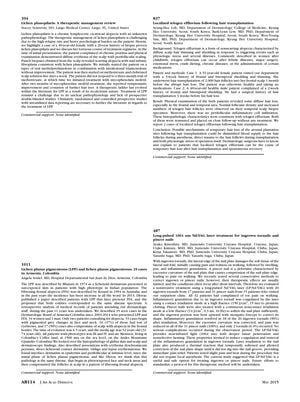Lichen Planopilaris: A Therapeutic Management Review
May 2015
in “
Journal of The American Academy of Dermatology
”

TLDR Mycophenolate mofetil may improve symptoms and stop hair loss in Lichen planopilaris, but more research is needed.
The document reviews the therapeutic management of Lichen planopilaris (LPP), a chronic lymphocytic cicatricial alopecia with an unknown pathophysiology, through a case study of a 40-year-old female with a 20-year history of the condition. Initial treatments with oral methylprednisolone and intralesional triamcinolone were unsuccessful, as was a three-month trial of methotrexate and clobetasol scalp solution. However, after two months of treatment with mycophenolate mofetil, the patient reported symptomatic improvement and cessation of further hair loss. The review emphasizes the challenge of treating LPP due to its unclear pathophysiology and the lack of prospective double-blinded studies, highlighting the need for randomized and controlled prospective studies to advance the understanding and treatment of LPP. No commercial support was identified for this study.





